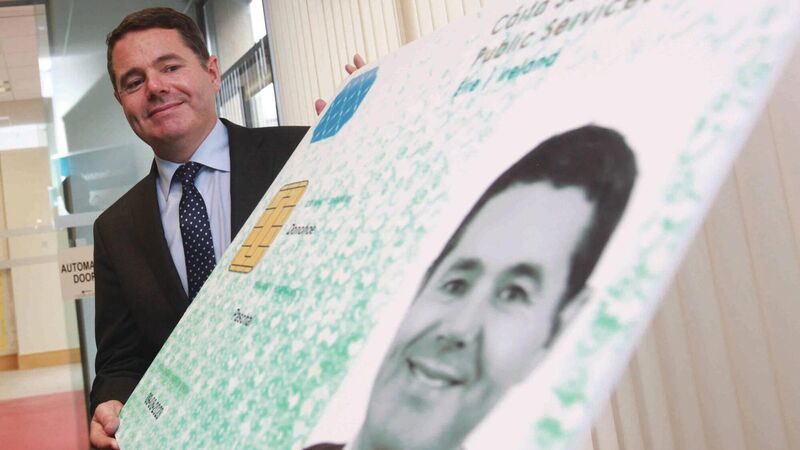Concerns raised as teachers required to use controversial card for online payslips

Paschal Donohoe at the launch of the introduction of the public services card in January 2020. Picture: RollingNews.ie
The mandating of teachers to get a public services card (PSC) in order to receive a new digital payslip has been branded “potentially discriminatory”.
Privacy consultant Daragh O’Brien of Castlebridge said that requiring teachers and principals to sign up for the State's controversial services card “has the potential to be discriminatory” given it “doesn’t seem necessary and proportionate to create this additional layer of bureaucracy”.










